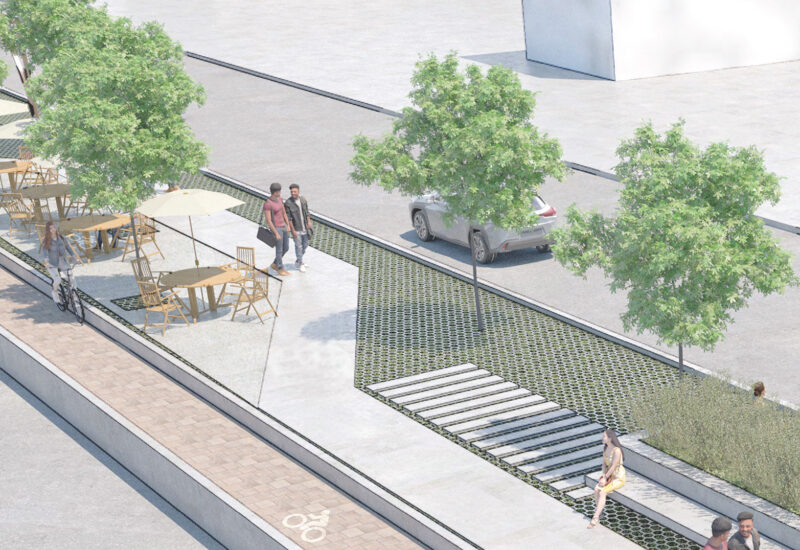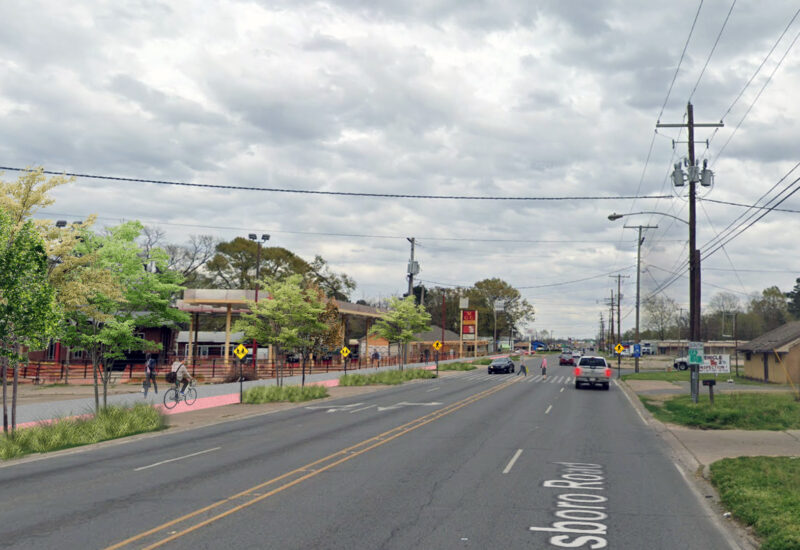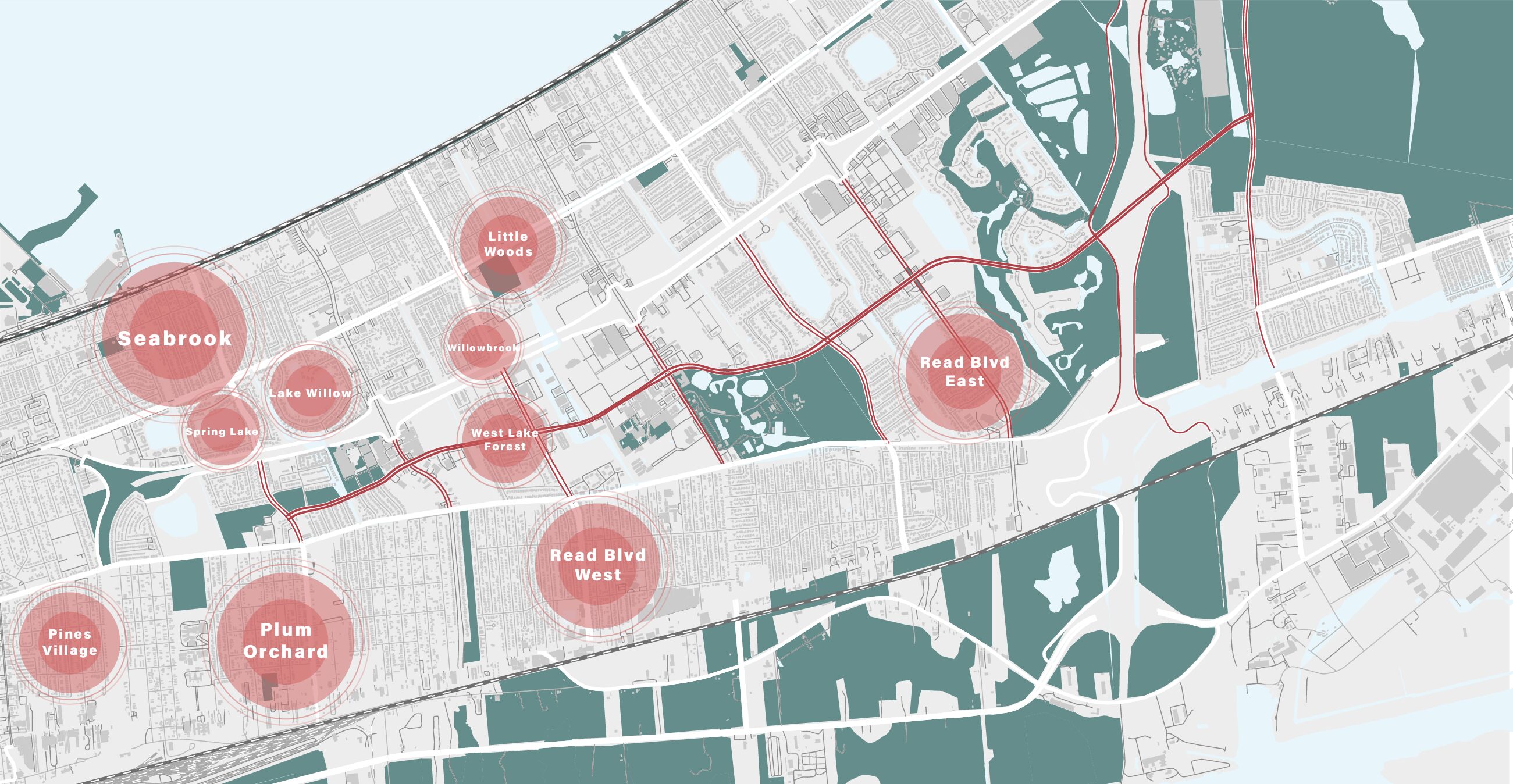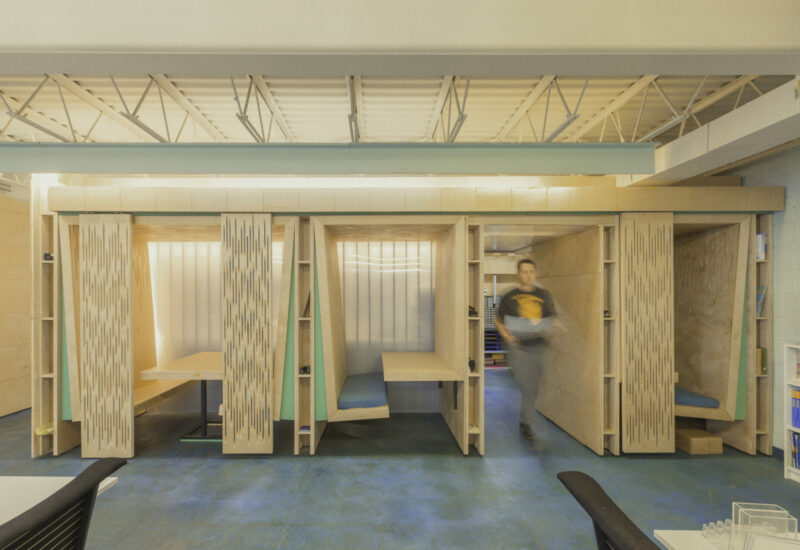News February 10, 2020
Art, Water and Dialogue combine at DEPART-MENT Opening Reception
More than 250 guests gathered at the Albert and Tina Small Center for Collaborative Design on Feb. 6 to celebrate the opening of the latest DEPART-MENT exhibit, on display through June 2020. The exhibit is open to the public from 10am-5pm Monday through Friday.
DEPART-MENT re-imagines the existing Small Center’s exhibition and event space at 1725 Baronne Street into a launch pad for individual and collective journeys that propel us towards a more enriching, equitable, and connected world. The Small Center, established 15 years ago, is the community-based design center of the Tulane School of Architecture.
Blurring the lines between academia, community, and design will open new pathways for the Small Center to expand on its body of work — building on existing partnerships to reach audiences previously out of its orbit. The hope is that DEPART-MENT will create a nexus for new ideas, coalitions, and civic action on issues related to the built environment locally and beyond.
“This is another step towards a New Orleans where every resident feels empowered to shape the places they live, work and play,” said Ann Yoachim, Small Center Director and Professor of Practice at Tulane School of Architecture.
Each semester, DEPART-MENT will tackle a different theme that speaks to one of the pressing issues of our time. In Spring 2020, water serves as the anchor. Led by Small Center Collaborative Design Project Manager Jose Cotto, Small Center partnered with The Water Collaborative, Tulane Faculty Aron Chang, PlantDAT and Freewater to create a mix media opportunity to discuss New Orleans’ ecological state.
On the exterior of the Small Center building are outdoor art installations and signage that provide a glimpse of what attendees will encounter during the exhibit. The first zone, Waterlogged: portraits of a past and future New Orleans, is a mix media exhibition produced by Jose Cotto and students in the Small Center’s Public Interest Design seminar that explores relationships with water in New Orleans to better understand collective lived experiences and better shape our future built environments. The second zone, Living with Hurricanes – Corner of Reflection, focused on asking attendees what it means to live with water in New Orleans and their thoughts on environmental resilience. The third zone, Water is not a Game, focused on attendees’ understanding of New Orleans stormwater management systems and promoted green infrastructure strategies through simple interventions. The indoor exhibit consists of three front zones in the front gallery space. At the opening reception on Feb. 6, attendees also participated in a dance party in the back large studio space and activities for adults and children throughout the center.
“Water Isn’t A Game, has brought community partners, designers, environmental specialists, and students together to reshape the way New Orleans thinks about water through the use of an art and technology laboratory. This nuanced concept could not have been created without the programmatic vision of the Small Center,” said Jessica Dandridge, Executive Director of The Water Collaborative.
Event attendees meandered throughout the various zones, with some taking pictures for the Waterlogged exhibit, some participating the virtual simulations of Water is not a Game, and some recalling their personal experiences with storms, flooding and living in a floodplain. All activities were hands-on, experiential and could be enjoyed by all age groups. The exhibit provides opportunities for inter-generational learning and makes space for people who want to learn more about New Orleans, its relationship with water, and explore their own relationship with water.
“We’re tackling some big questions in this seminar that have to do with how we represent events like Hurricane Katrina and the aftermath of the storm and levee failures, how we process loss and trauma as a city and a region, and how museums can play a role in shaping environmental stewardship and community resilience. By sharing space within DEPART-MENT with people and organizations — ranging from artists to environmental nonprofits to urban planners — who are engaging these same questions every day, we’re able to collapse the distance between the academic environment where we research and design and the worlds that we seek to engage,” said Aron Chang, founder of The Blue House/Ripple Effect and Adjunct Faculty at Tulane School of Architecture.
This exhibit is open to the public from 10 am -5 pm Monday – Friday
JOIN US FOR THE FOLLOWING ACTIVITIES:
Living with Hurricanes
- May 8 – Design prototype exhibition
Waterlogged
Portrait Sessions every Wednesday from 4pm- 6pm or folks can email jcotto@tulane.edu to schedule a session.
- February 6 — “Bayou, By Me.” will be up for display. Students in the Public Interest Design seminar will be exhibiting ‘portraits’ of Bayou St. John and the surrounding neighborhood.
- March 26 — “Bayou, By Us.” will be up for display. Students in the Public Interest Design seminar will be exhibiting the results of temporary activations they will deploy along Bayou St. John to engage users.
- May 6 — “Bayou, For All.” will be up for display. Students in the Public Interest Design seminar will be exhibiting design proposals for long-term activations along Bayou St. John that are informed by insights and learnings gathered throughout the semester.
Water is not a Game
Solution Sessions are workshops that combine design thinking and games to tackle water and climate issues facing our area. All solution sessions have a central focus of engaging new sectors with the water industry towards building new collaborative efforts to grow the water sector and find solutions to our sectors most pressing problems. Solution Sessions are open to partners, sponsors, funders, and other interested parties including field trips and tours. Interested parties should contact Jessica Dandridge at jessica@nolawater.org.
- Introductions to Native Plants – March
- Youth Water Leaders Pipeline – March
- Plant Dat Feedback Session – April
- City Employees Design Thinking Green Infrastructure Course – March and May
- Introductions to Native Plants – March
- How Water Works – April How Funding Works – May
- #FREEWATER Feedback Session – May
- Water in – School Curriculum – June
- Water Hackathon – June
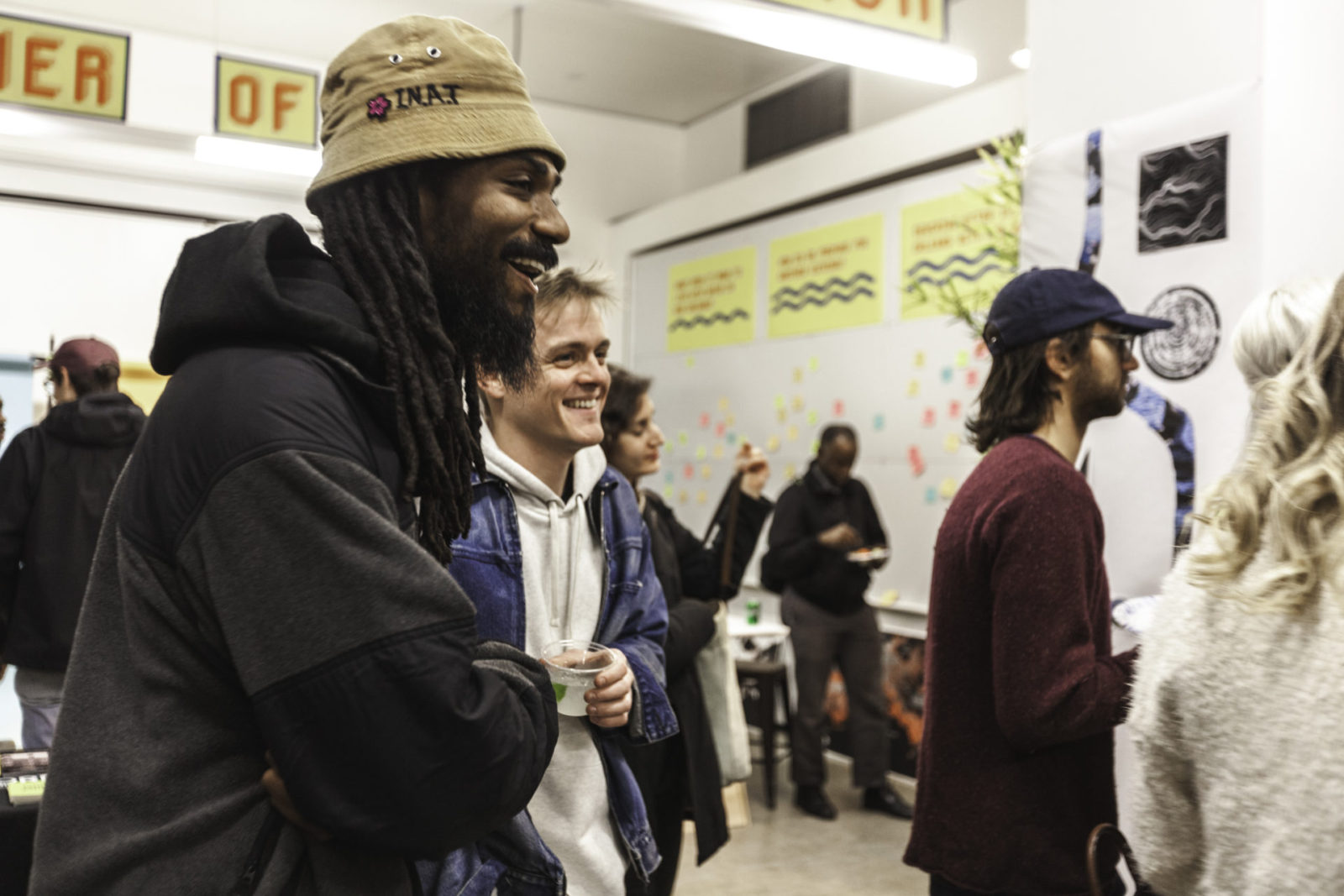


 Menu
Menu